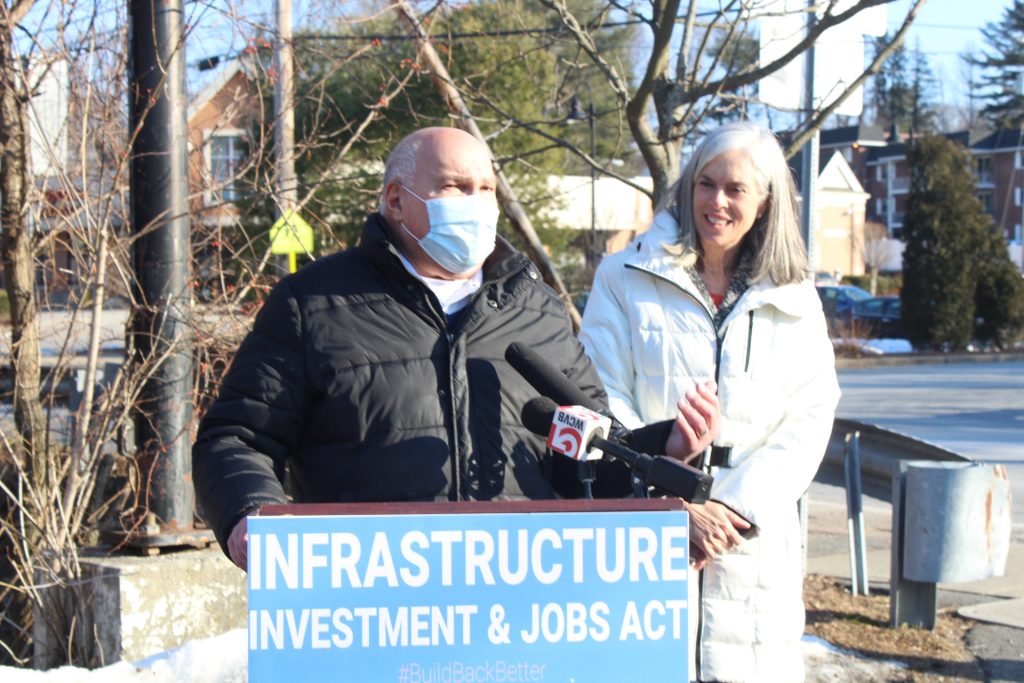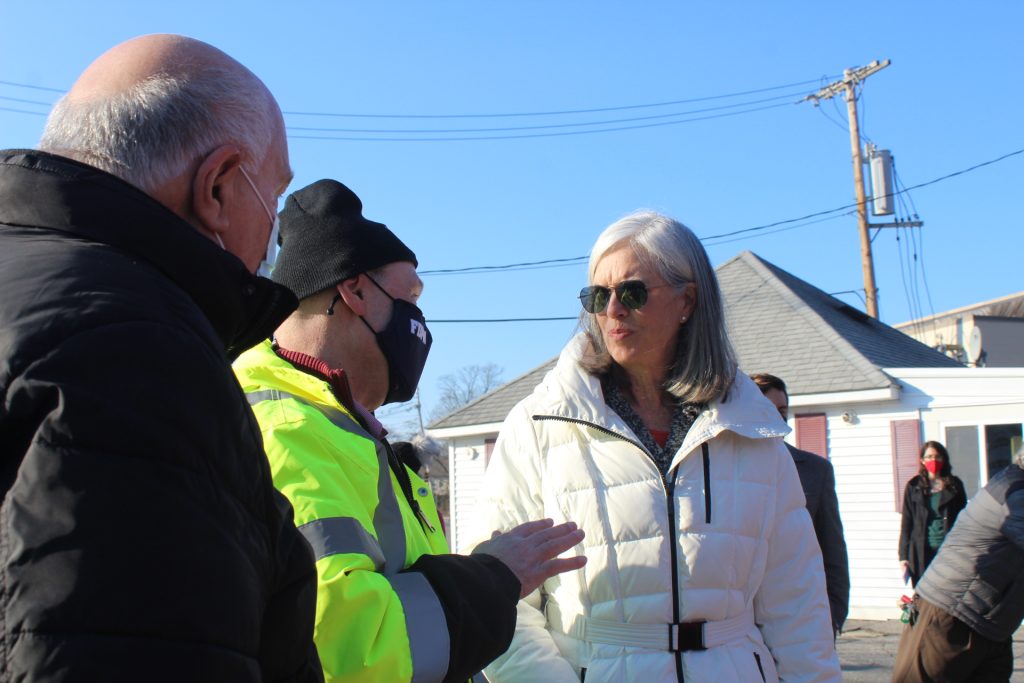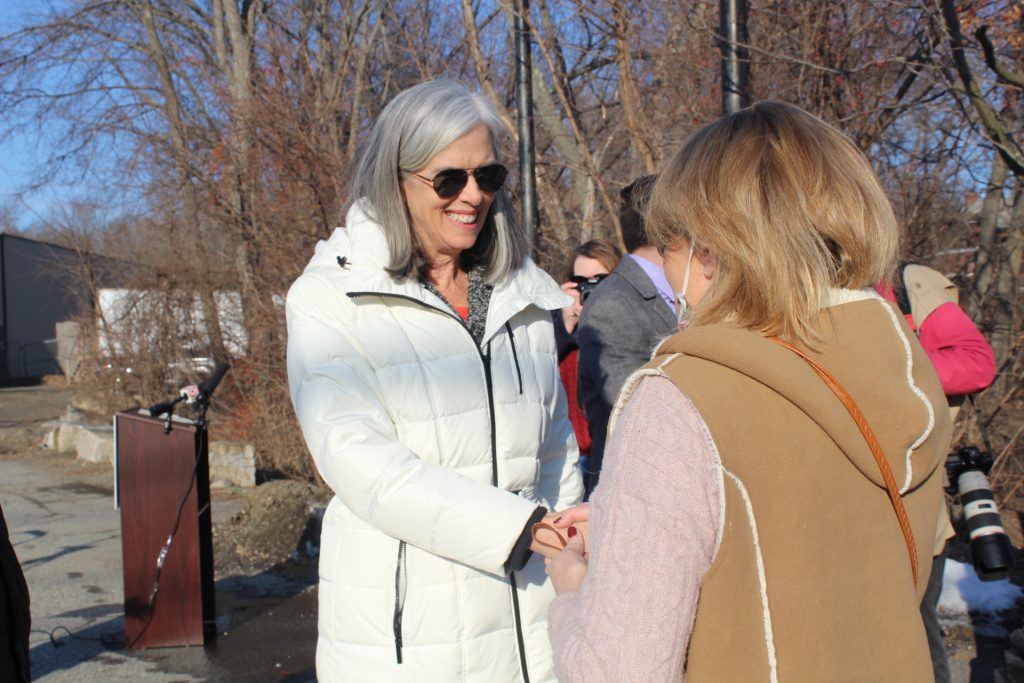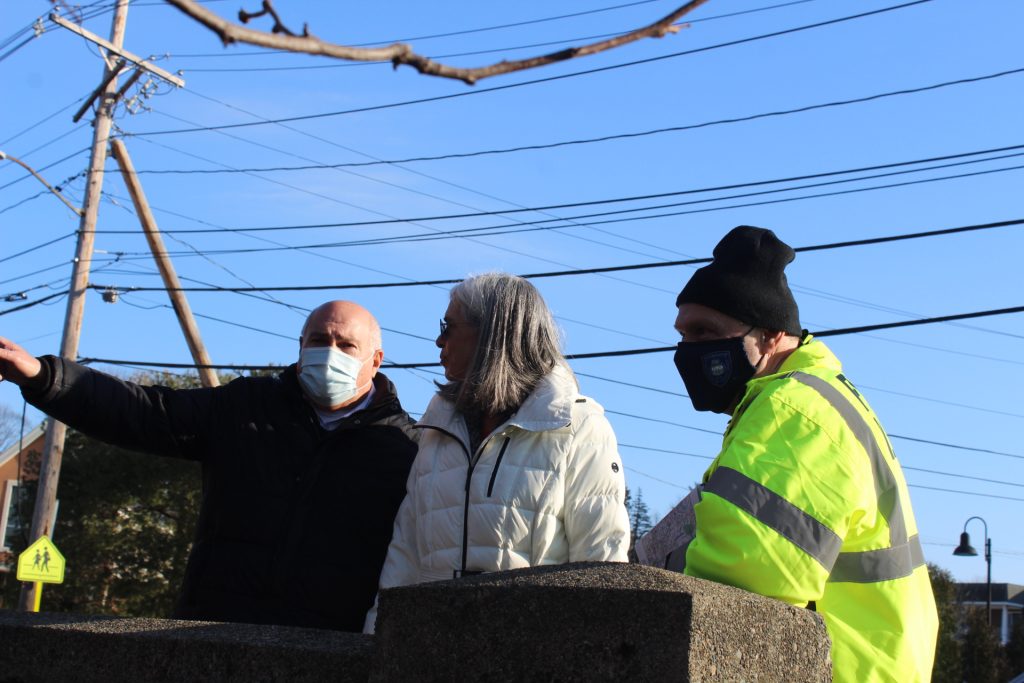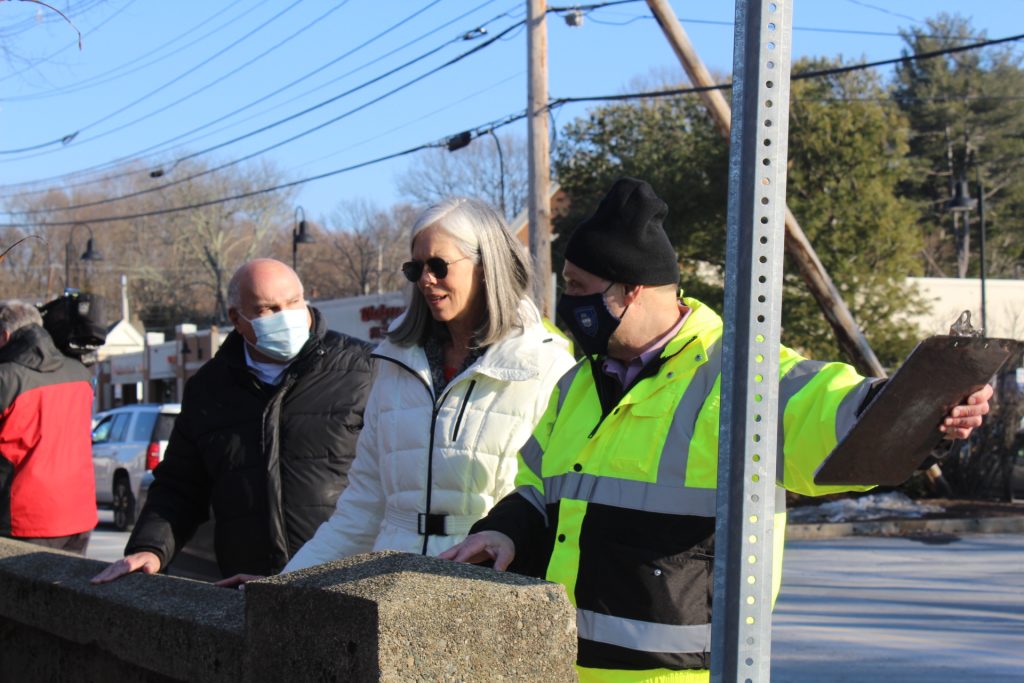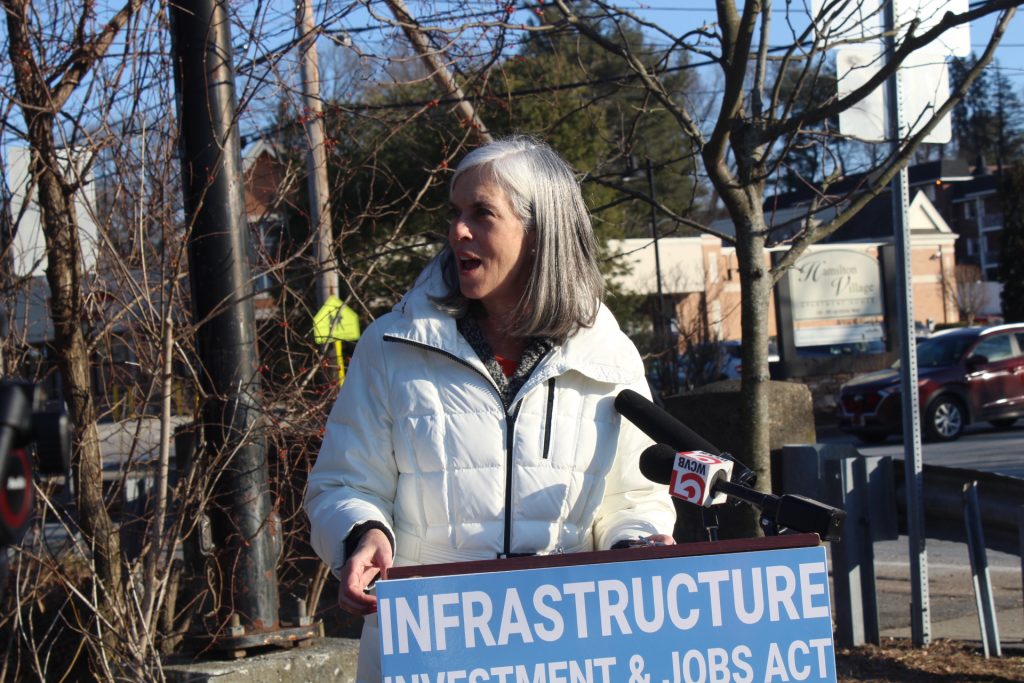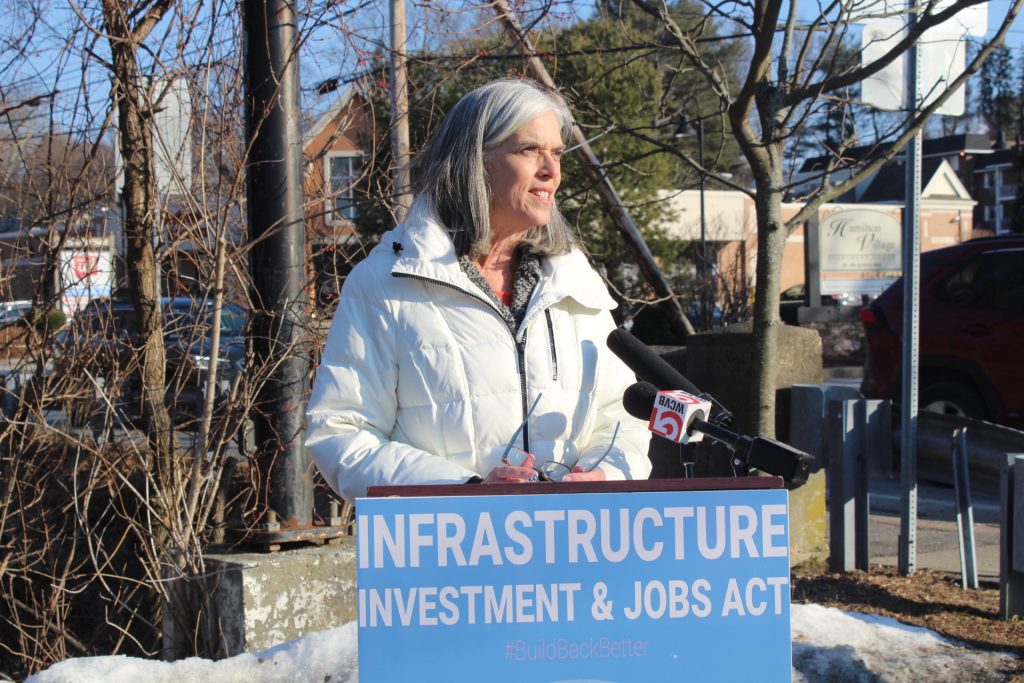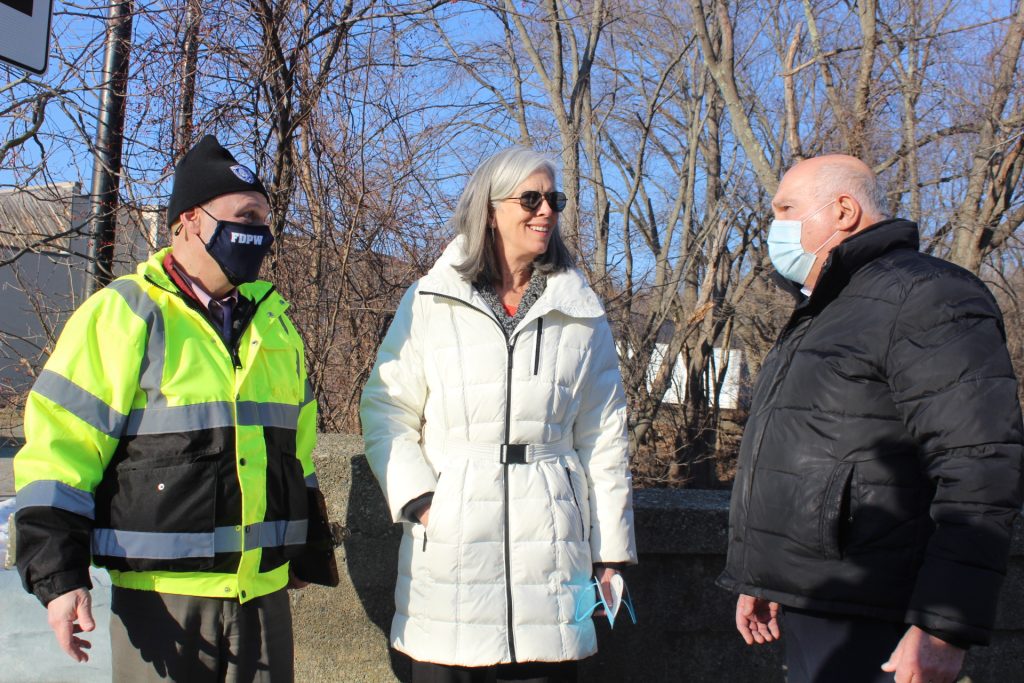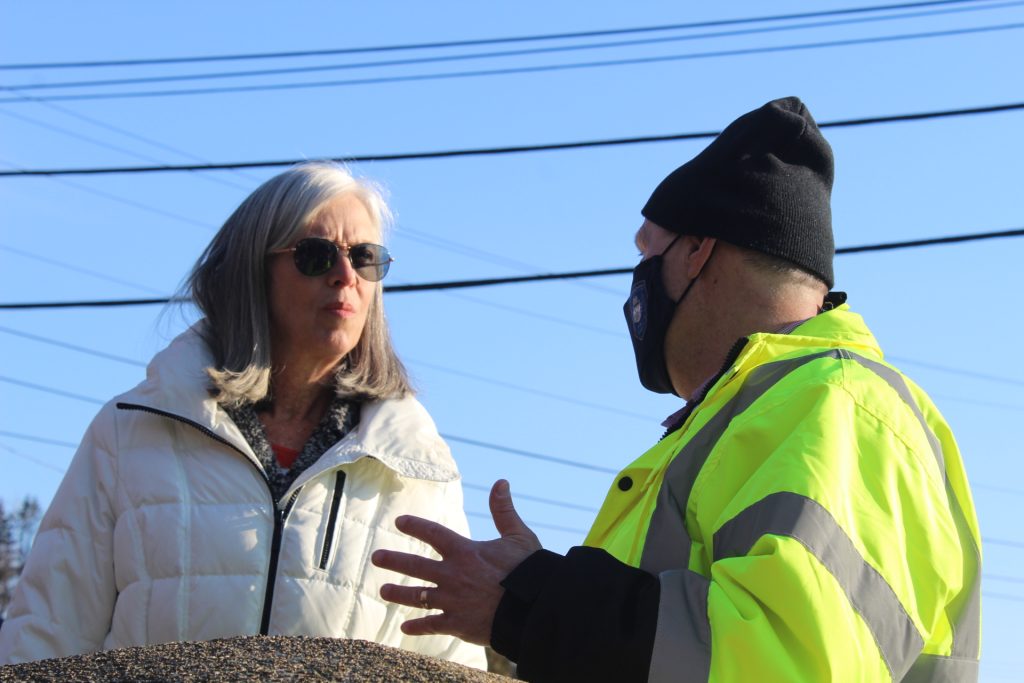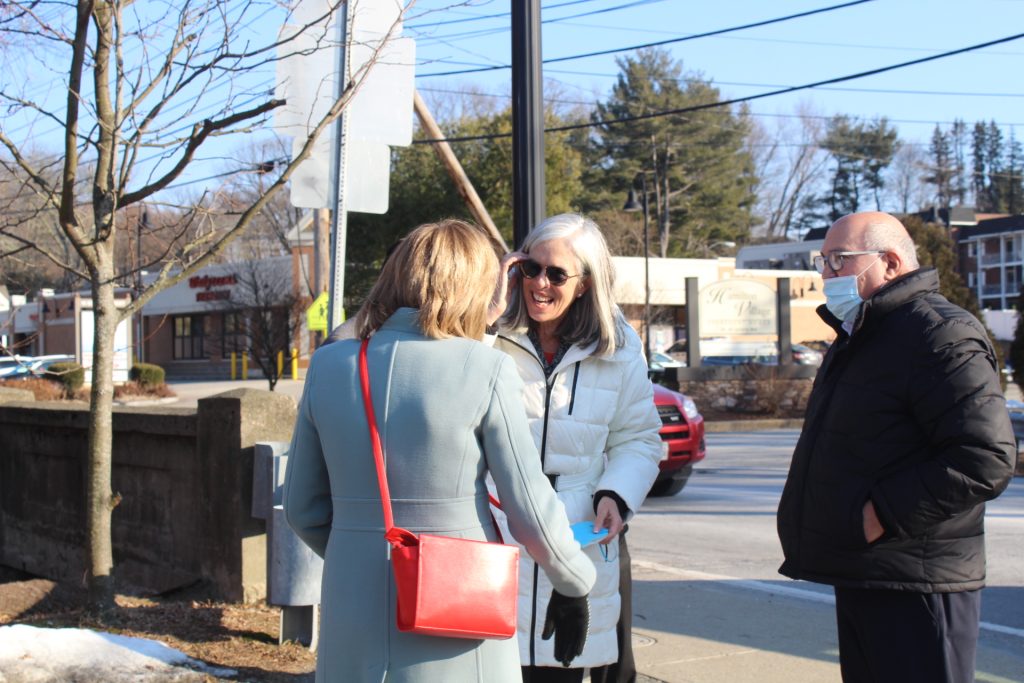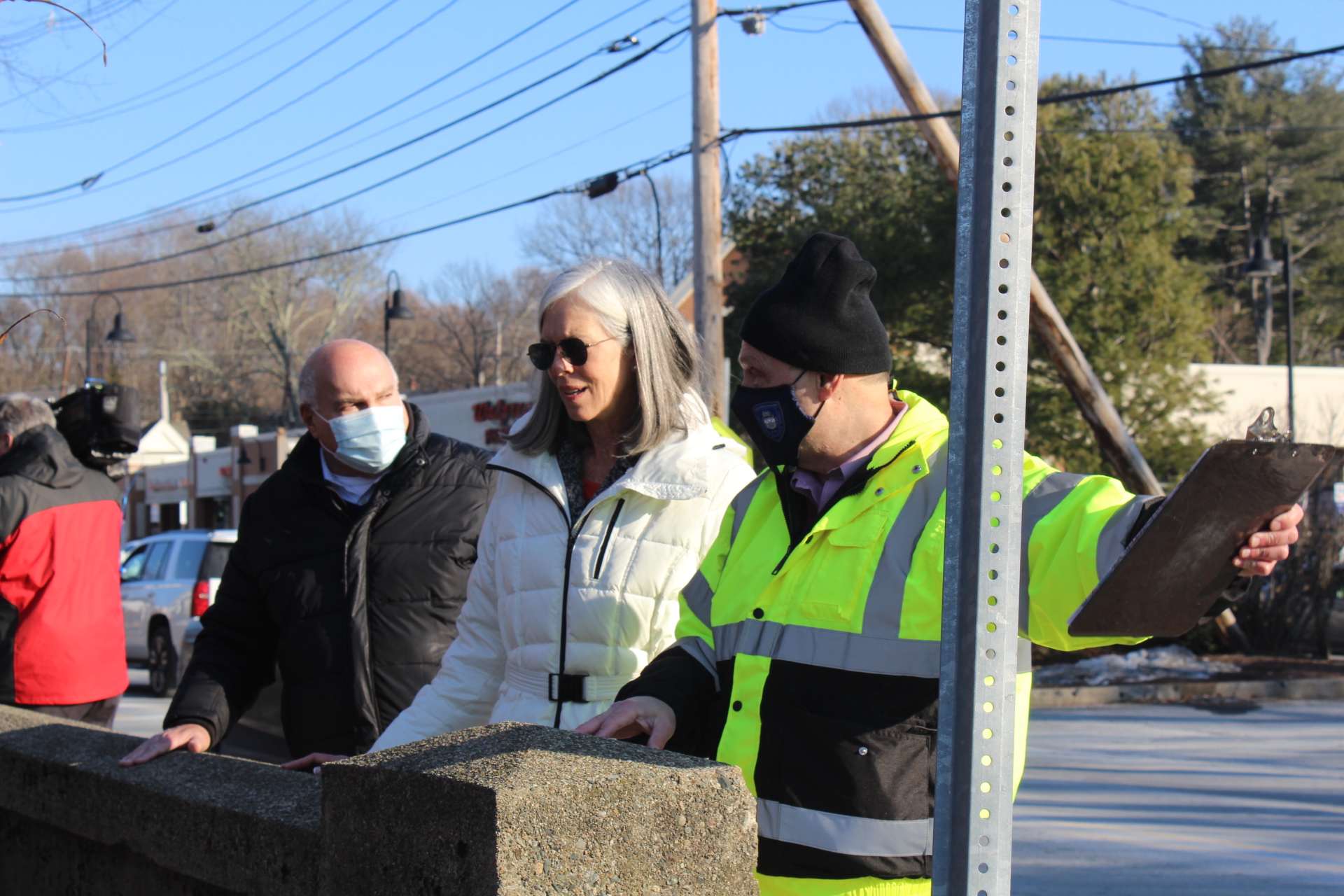[broadstreet zone=”59982″]
[broadstreet zone=”59945″]
FRAMINGHAM – It may not even look like a bridge, when you drive over it, but the well-travelled 15-foot School Street bridge in Saxonville is in desperate need for repairs.
The small reinforced, concrete slab bridge that is 97 years old, is at the end of its reliable life, according to City officials.
Monday afternoon, Assistant Speaker of the U.S. House Katherine Clark joined Framingham Mayor Charlie Sisitsky and the City’s Transportation Engineer Simon Alexandrovich for a tour of the bridge to highlight the Commonwealth’s new funding for bridge repairs and upgrades, paid for by the federal Infrastructure Investment and Jobs Act.
“This bridge is small, but it has big problems,” said Congresswoman Clark. “It is central and yet at the end of its reliable life.”
President Biden signed the Infrastructure Act into law in November 2021.
Of the 5,229 bridges in Massachusetts, 472, or 9%, are classified as structurally deficient.
Mayor Charlie Sisitsky said about a dozen of the City’s bridges are in need of repair or reconstruction, like the School Street bridge.
[broadstreet zone=”59983″]
Located just east of the signalized intersection of Concord and School Street and the northern terminus of the Cochituate Rail Trail, the School Street bridge is a key link in the City’s transportation network.
It is 1/3 mile from Framingham High School and 1/2 mile from the Stapleton Elementary School in the heart of Saxonville, just north of Route 126.
The existing structure is narrow, allowing for 2 travel lanes, no shoulders and one sidewalk.
But it is a busy bridge, with more than 3 million vehicles annually that travel over it.
Shutting down the bridge for require constructing a temporary bridge, which could cost $500,000.
And then there would be the design and construction costs for a new bridge over the Cochituate Brook.
The proposed new bridge will provide shoulders and sidewalks on both sides connecting to the rail trail, as well as 5 foot-wide shoulders for bicycle accommodation along School Street, and replacement of aged utilities.
“The School Street Bridge is a central transportation link for residents, connecting schools, neighborhoods, and the City’s commercial center. But after 97 years, it’s at the end of its reliable life. When we allow our infrastructure to deteriorate, we see traffic increase, productivity, and quality of life go down, and commuters face higher costs,” said Assistant Speaker Clark. “That’s why Congress and the Biden Administration made it a priority to enact the new Infrastructure Investment & Jobs Act, the largest long-term investment in our infrastructure and economic competitiveness in nearly a century. I was honored to join Mayor Sisitsky to discuss how this funding will lower commute times and costs for drivers and improve our overall economy.”
[broadstreet zone=”53130″]
City Council Chair Phil Ottaviani Jr attended the event Monday, as did City Councilors Janet Leombruno, Michael Cannon, Cesar Stewart-Morales and Leora Mallach. District 2 School Committee member Ricky Finlay also attended.
All four Framingham State representatives Carmine Gentile, Danielle Gregoire, Jack Patrick Lewis, and Maria Robison also attended the press conference.
Last week, the U.S. Department of Transportation’s Federal Highway Administration (FHWA) announced that the first round of funding from the Infrastructure Investment and Jobs Act’s $27.5 billion bridge formula program was distributed to states and Tribal communities.
This is the largest investment in bridge infrastructure in American history.
In this initial round of funding, the Massachusetts Department of Transportation (DOT) will receive $225.3 million for fiscal year 2022. Over the life of the five year program, Massachusetts will eventually receive $1.1 billion for bridge replacement and repair projects across the Commonwealth.
In addition to the formula funding headed to the Massachusetts DOT, the Infrastructure Investment and Jobs Act includes a $12.5 billion bridge investment program, which will provide competitive grants to assist state, local, federal and Tribal entities in rehabilitating or replacing economically significant bridges.
[broadstreet zone=”58610″]
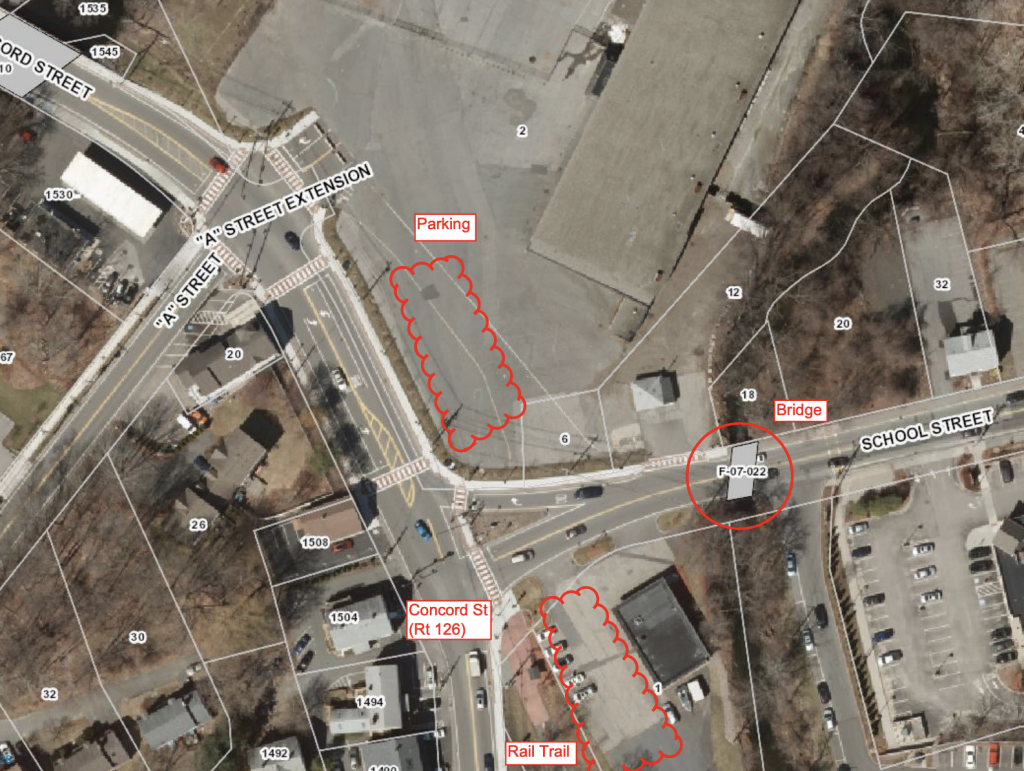
Photos by SOURCE intern Caroline Gordon, a Framingham State student, who is scheduled to graduate in spring 2022.
